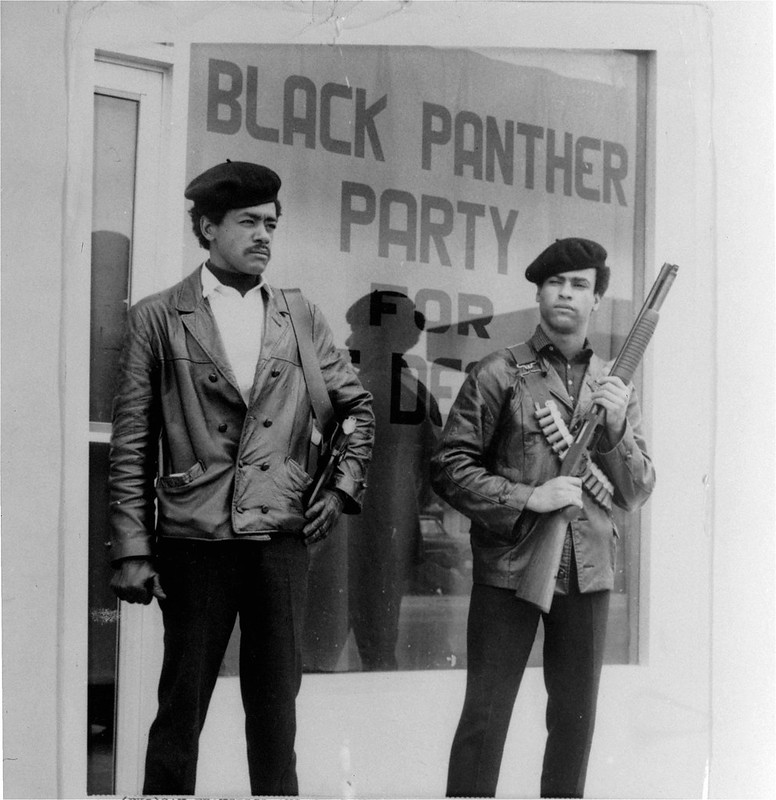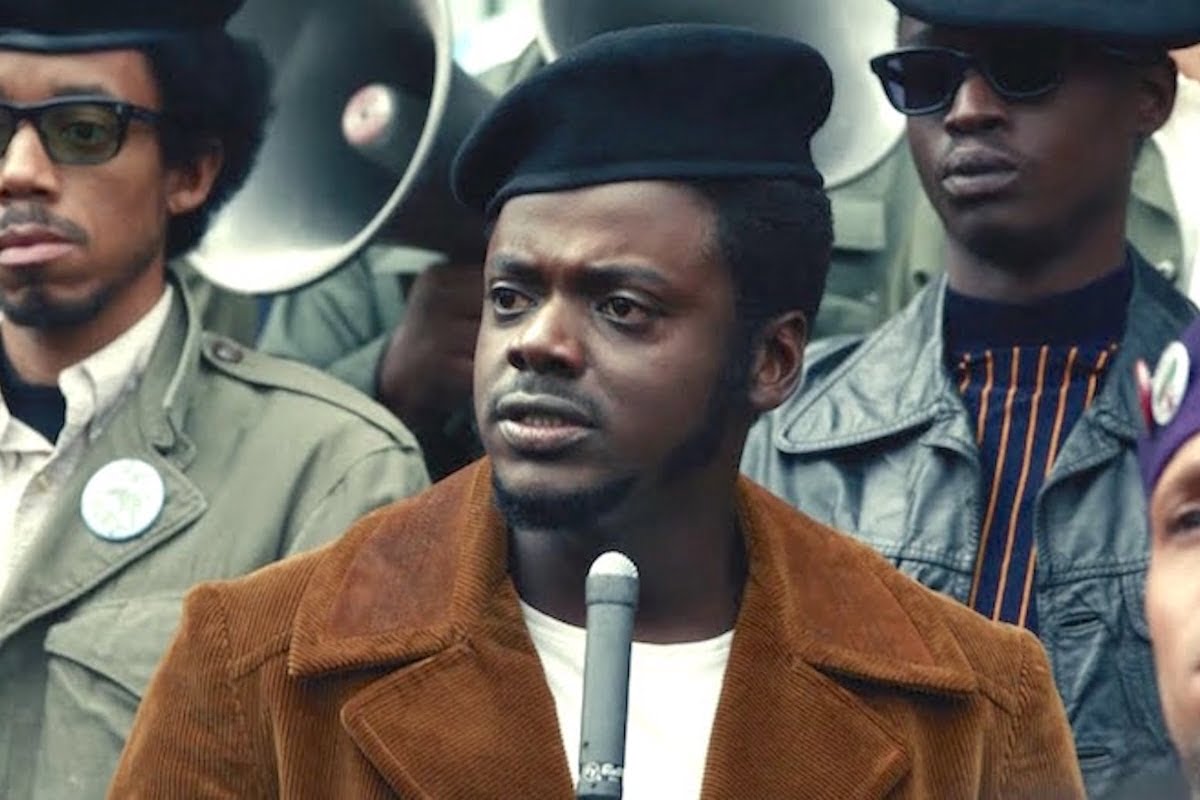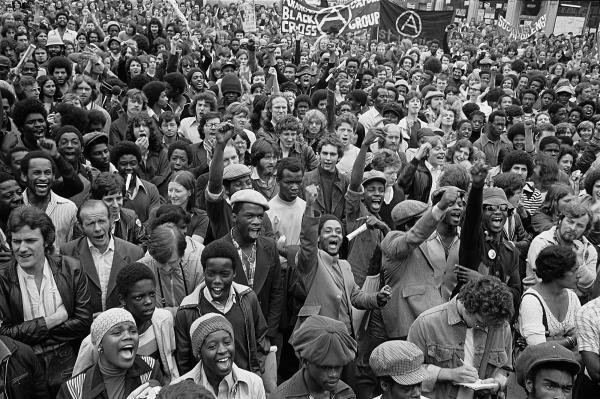A new film by director Shaka King tells the story of the Black Panther Party and the assassination of one of its revolutionary leaders, Fred Hampton – highlighting the lengths the ruling class will go to in crushing socialist struggle.
Judas and the Black Messiah is the most recent film that attempts to bring the Black Panther Party – and one of its most prominent leaders, Fred Hampton – to the public eye.
Directed and produced by Shaka King, the film puts the socialist, revolutionary politics of Hampton – impressively played by British actor Daniel Kaluuya – at the forefront. King does this by portraying the events of late 1960s Chicago, with a narrative that follows FBI informant William ‘Bill’ O’Neal, who infiltrated the party.
Black struggle
The Black Panther Party was formed in the tail-end of the civil rights movement in America, at a time when some reforms had been won for the black working-class, including the abolition of the Jim Crow laws. Despite their limitations, these reforms were still important, and had been painstakingly won through a long period of class struggle.
The advanced layers of the movement for black liberation wanted to go further, through more militant and active struggle. This was in contrast to the misguided pacifism that had shown itself to be unable to fully achieve the aims of the struggle.
As a result, the Black Panther Party came together with a revolutionary approach to the question of black liberation.
Hampton quickly rose to become part of the leadership of the party after he joined in 1966. From this position, he terrified the ruling class in America, displaying an ability to connect with workers and rally them towards the party.
The ruling class therefore felt it necessary to cut Hampton’s life short – although he was only at a young age – in order to prevent him from flourishing into a revolutionary who could potentially link the black struggle to that of the wider class struggle for socialism.
Infiltrating the party through informants like O’Neal, the FBI were able to determine the layout of Hampton’s apartment and where his bed was. Thanks to this information, the authorities called in a raid, where 14 police officers broke into the apartment, shooting at least 90 bullets at the group of Panthers staying there. Hampton was executed and the survivors were all arrested.
This was a conscious decision by the ruling class to crush the Black Panther movement, mobilising the forces of the state – such as the FBI and the police apparatus – to assassinate Hampton. Here we see the true colours of the state under capitalism: killing those that represent a threat to private property and the ruling class in general.
Political education
 Before arriving at this point, however, the various elements of the Black Panther Party’s struggle are depicted in the film: from a free breakfast programme; to mass demonstrations; to ambushes of the police.
Before arriving at this point, however, the various elements of the Black Panther Party’s struggle are depicted in the film: from a free breakfast programme; to mass demonstrations; to ambushes of the police.
This spectrum of activity reflects the various ideas that were present in the party: there were Maoist tendencies; black nationalist tendencies; and an array of other conflicting ideas, which led to a very heterogeneous membership of the party.
This was also a symptom of the lack of systematic political education in the party. And the effects of this are demonstrated in the film with Hampton’s imprisonment – and ultimately with the dissolution and decline of the party following his death.
A revolutionary organisation requires perspectives and a clear programme, in order to bring the most advanced layers of the working class together in the struggle for socialism.
These can only be formulated by studying the movements of the past, learning from their successes and mistakes, and applying these lessons to today. After all, those who do not learn from history are doomed to repeat it.
In the film, we get a glimpse of the political education within the Black Panther Party, with comrades listening to Hampton giving a talk about the class struggle between ‘the people’ and the state.
But it is clear that most comrades – and even Hampton to an extent – had a scattered and confused political education. This culminated in some going down the path of killing cops, inviting more state repression against the party and its membership.
Role of the individual
There can be no doubt that Hampton was an inspiring revolutionary. He was able to passionately put forward the need for socialism – to liberate not only the doubly-oppressed black population, but the working class as a whole, regardless of their race.
Judas and the Black Messiah, however, falls back on the typical bourgeois perspective of history, which sees history as nothing but the result of the efforts and actions of ‘Great’ individuals and their ideas. In this respect, the film makes it seem as if it was purely Hampton and his charisma that enabled the party to grow and thrive at its peak.
Following Hampton’s imprisonment (on false charges of stealing around $70 worth of ice cream), Black Panther comrades are shown as being lost, with “membership [decreasing], donations dwindling”; unable to continue building and winning over more radical members to the party.
The film portrays the rise and fall of the party as an unfortunate accident, coinciding with Hampton’s prominence and leading role within the movement as a socialist revolutionary.
But there were deeper problems with the Black Panthers, which at root reflected the contradictory political ideas between the different factions of the party. Members were forced to ‘pick sides’. And rather than funding itself through the membership, the party increasingly used illicit means to raise money, such as drug dealing and robbing nightclubs.
There is no doubt that pernicious FBI infiltrators, along with the assassination of Hampton, sharpened these contradictions. But on a strong theoretical basis, with a clear political programme and strategy, the party could have been far more prepared, resilient, and robust in facing the challenges that were thrown at it.
‘Justice’ and the bourgeois state
Shaka King clearly emphasises that Fred Hampton was a revolutionary. Nevertheless, the film’s conclusion reveals the director’s illusions in the capitalist state – and, by extension, capitalism.
At the end, the film mentions the $1.8m lawsuit that took place in the aftermath of Hampton’s assassination, viewing this as ‘justice’ for his murder, and for the wider oppression of black people under capitalism.
In other words, one minute we see the full force of the state being used to crush this revolutionary party and its leaders. The next, we are told that we must rely on this same oppressive state apparatus to get ‘justice’!
This view of the state as some neutral arbiter, standing above society, contradicts sharply with reality – and with what is shown in the film. The fact is that the ruling class will use ‘any means necessary’, including cold-blooded murder, to maintain its power, property, and profits.
The ruling class consciously recognised the threat that the Black Panther Party posed to their capitalist interests. As a result, they sought to destroy it: using paid informants to exploit existing tensions within the party; and decapitating the movement of its most promising political leaders, such as Hampton.
In the final analysis, the state is a tool used to defend and protect the interests of the ruling class. No amount of reforms can change this.
Only socialist revolution – through united class struggle, putting control in the hands of organised workers – can end exploitation and oppression, providing liberation for black people, and for the whole of the working class.






